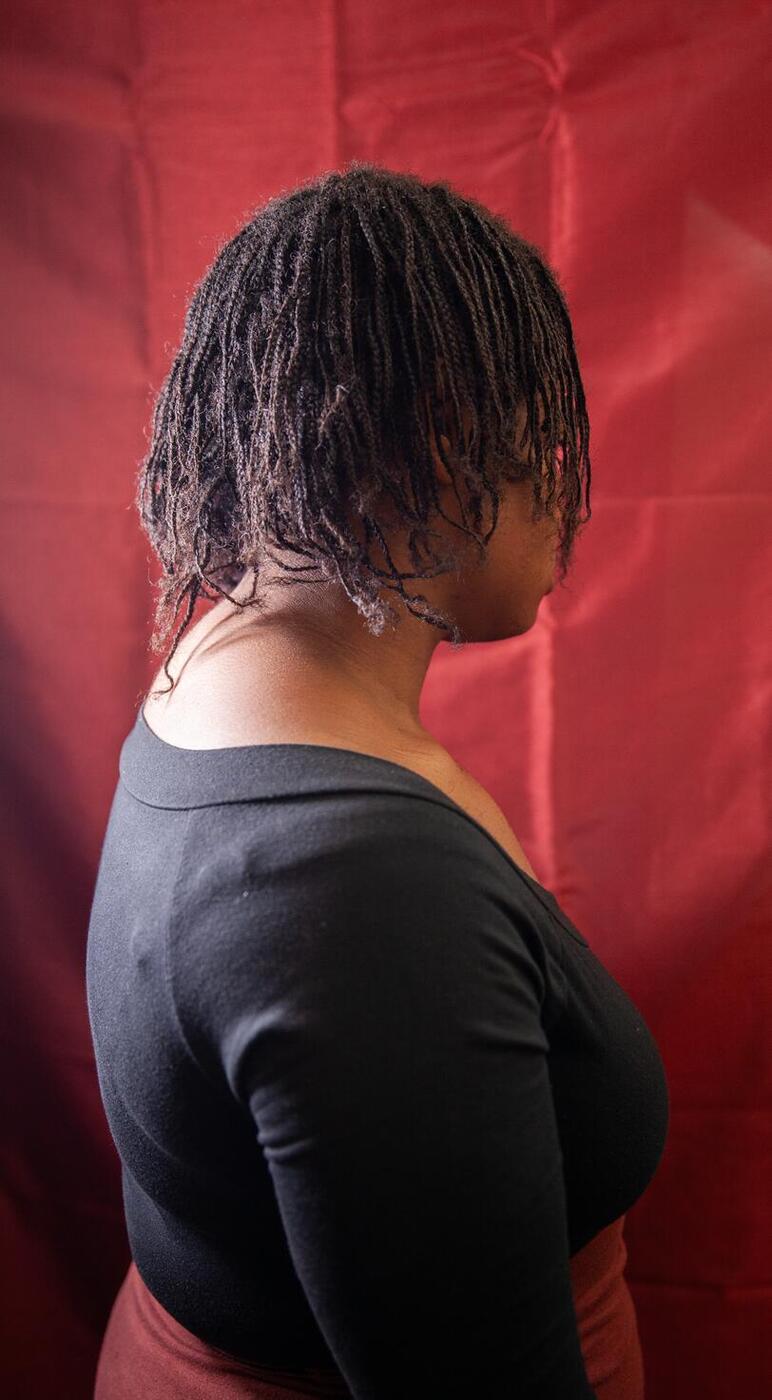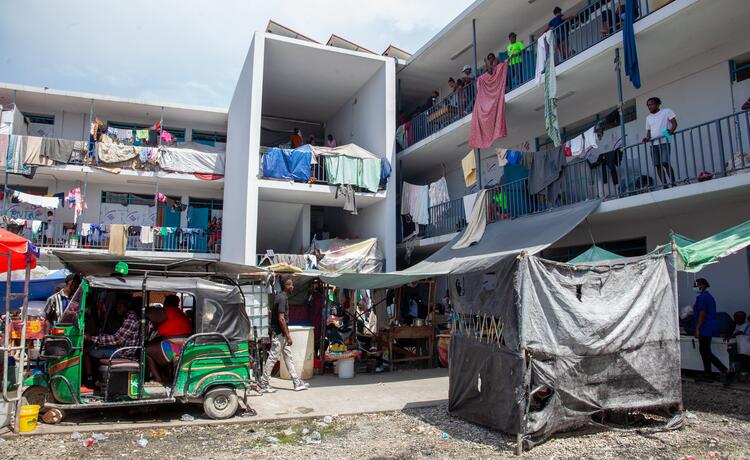News
“No one is spared”: Sexual violence wielded as a weapon in Haiti’s humanitarian crisis
- 26 June 2024
News
PORT-AU-PRINCE, Haiti – “One of the biggest problems is insecurity – and the physical and sexual violence that comes with that,” explained Edrish Justilien, 36, a psychologist at the Petite Place Cazeau Hospital in Haiti’s capital Port-au-Prince.
Dr. Justilien spoke to UNFPA, the United Nations sexual and reproductive health agency, about the alarming risks women and girls are grappling with amid the country’s ongoing humanitarian crisis. “Rape cases are what we are seeing most commonly, mostly [committed] by armed gangs.”
Extreme violence in Port-au-Prince especially is putting the lives and health of millions in peril. An estimated 578,000 people are displaced within the country, forced to abandon their homes and risking death, rape, kidnapping, and unsafe, overcrowded living conditions. Many are suffering severe psychological distress, with an alarming rise in suicidal tendencies.
For women and girls, it is a battle being waged against their bodies, as sexual violence is used by gangs as a tactic to instil fear and seize control of entire neighbourhoods. “No-one is spared: This makes all of us live in a state of vigilance,” said Dr. Justilien.
“I personally fear that when a family member or someone close to me goes into the streets, something will happen to them.”
Although reports of rape and sexual abuse are soaring, they are a vast underrepresentation of the true scale of these crimes. “[Survivors] often don't like to report it, mainly out of fear of being re-victimized,” said Dr. Justilien.
As gender-based violence protection and response services are restricted or suspended amid the insecurity, UNFPA is supporting the Petite Place Cazeau Hospital to assist survivors – only around 3 per cent of whom are able to be treated within 72 hours of being attacked, reports show. “We guide them and ensure they get comprehensive care,” explained Dr. Justilien. “This includes psychological support, emergency contraception, and testing for and treating sexually transmitted infections.”
A crisis for everyone
The situation has taken a heavy toll not only on the people subjected to violence, but also those determined to help them. “Emotionally it can be very heavy,” said Dr. Justlien. “A patient’s story might resurface experiences that you or someone close to you has had.

“To support people effectively you have to look after yourself too.”
Through the health centre, patients are provided with continuous follow-up to ensure they are recovering mentally and physically. “Continued appointments are vital – gradually, they can regain their life.”
Fabienne* is a survivor of sexual violence and one of Dr. Justilien’s patients. After fleeing her home in Port-au-Prince, she had gone to stay with her uncle in a relatively calmer neighbourhood.
“A neighbour had a basin in the courtyard where we could get water,” she said. “One day, I entered the courtyard and found a group of people sitting there. They told me the neighbour had said I would give them the house key. I said I didn't have the key, I only had access for us to get water in the courtyard.”
But the men were actually gang members, who held her captive and tied her up by a chain under the blazing sun. “Then they beat me and raped me.”
Although her attackers eventually released her, she was kept under constant surveillance. “They watched the house, but one night I managed to leave and came to the hospital. [Here] they took good care of me, it was the best choice I could have made.”
The assault caused her deep psychological as well as physical trauma. “Before, I was a cheerful and outgoing person. Afterwards I became closed off, wary of everyone. I'm always crying [...] it was not easy for me to live through this ordeal.”
“The advice I’d give all young girls who have suffered abuse is to find a place to vent, to see a psychologist, not to try to kill themselves as an escape.”
Hope for a new future
Access to health care, social services and psychological assistance is increasingly scarce. Many hospitals have closed or slashed operations because they are running out of medicine and staff.
Fewer than half of health facilities in Port-au-Prince are fully functional and most are completely overwhelmed.

UNFPA is providing medicines and supplies, including for the clinical management of rape, to 12 health facilities in the capital and surrounding region, as well as supporting three hospitals in Port-au-Prince to ensure critical maternal health services. Mobile clinics are also operating at eight displacement sites to support women’s and girls’ sexual and reproductive health, as are hotlines for survivors of sexual assault and safe spaces providing psychological and medical support.
Speaking of his dedication to his fellow Haitians, Dr. Justilien said, “I do this work with love and passion. I put all of myself, my entire life into it, because what I am aiming for is to create a new society, and to enable us to breathe a sigh of relief.”
Fabienne said she wishes to join him one day. “I hope everything changes for the country; my dream is to become a doctor so I can serve my brothers and sisters in Haiti.”
*Name changed for privacy and protection